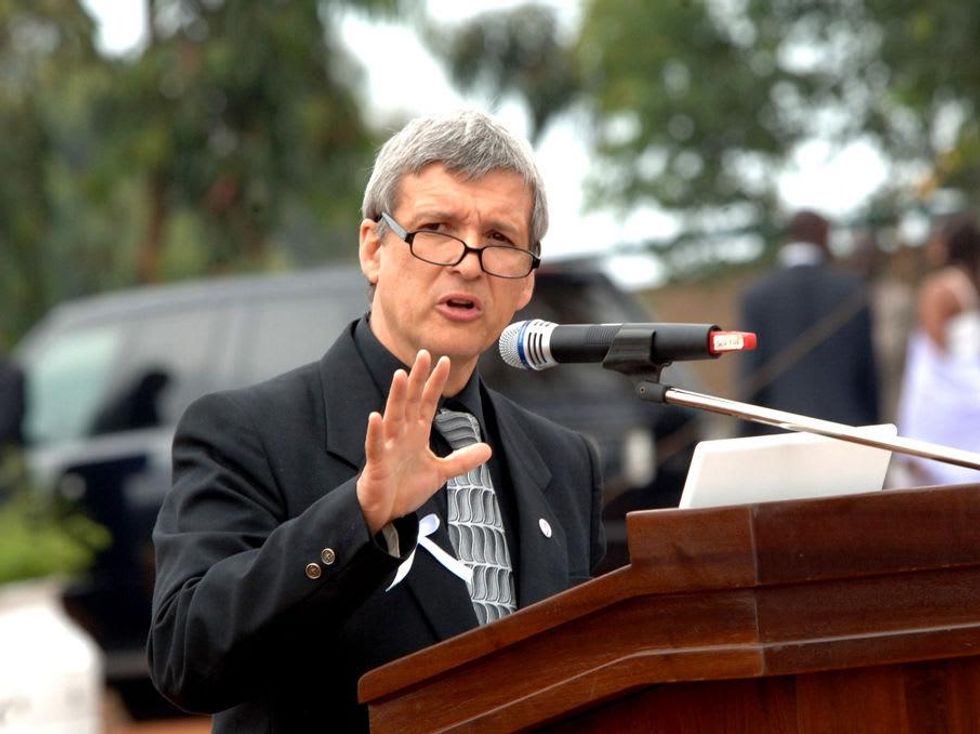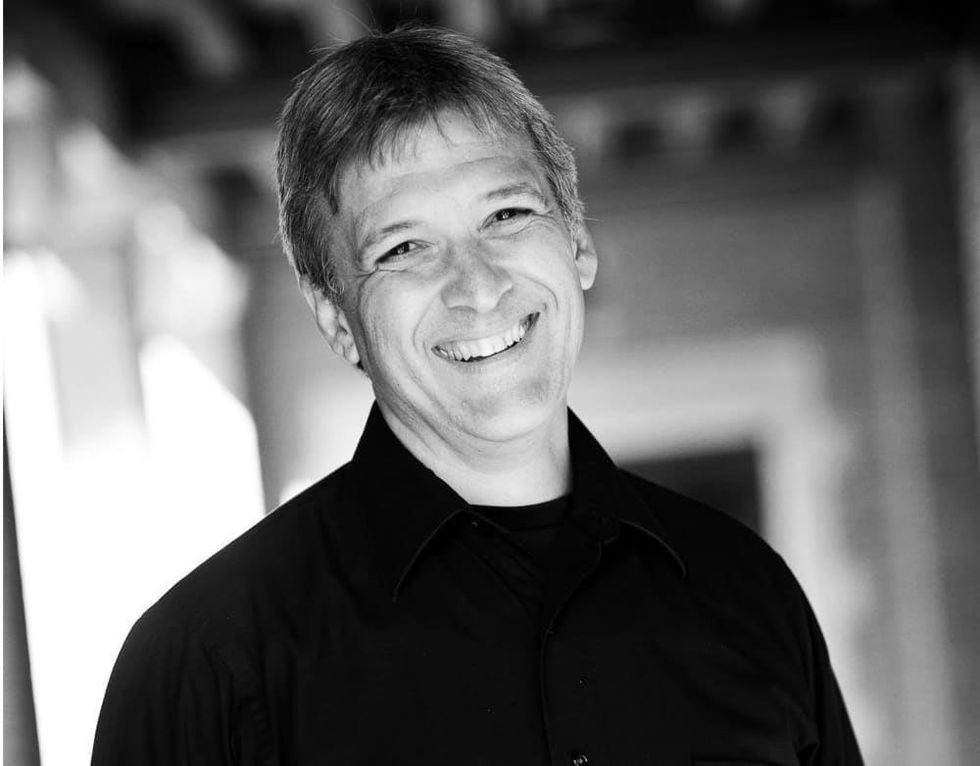One in a Million
Humanitarian Carl Wilkens on the genocide in Rwanda and the power of women
It’s not often that one can claim to be “the only.” But Carl Wilkens can. When the Rwandan genocide of the Tutsis by the Hutus began in the spring of 1994, Wilkens was the only American to stay in the country. For nearly 100 days, Wilkens worked to protect and supply Tutsis and sympathetic Hutus as the government and militias systematically massacred an estimated 600,000 to 1 million citizens.
Wilkens, now the director of World Outside My Shoes, a nonprofit for educating people on how to stand up to genocide, racism and intolerance, spoke at the Dallas Holocaust Museum on May 16. He shared his experiences in 1994 and Rwanda’s attempts to recover in the wake of what has been called the “pure genocide.”
In 1994, after his wife, Teresa, and their three children left on the last American envoy out of the country, he maneuvered through battle zones and bombings to bring food and medical aid to those most in need. At one point he worked to save a group of hiding Tutsis from slaughter by the militia. They were hiding in an orphanage in Gisimba.
Wilkens maneuvered through battle zones and bombings to bring food and medical aid to those most in need, including saving a group of hiding Tutsis from slaughter.
He says that for all the times he spent dodging bullets and reacting to violence around him, it was that orphanage that proved the most harrowing.
“The militia had sent a message the day before that they were coming to kill everyone in the morning,” he says. “It didn’t matter if they were Tutsi or Hutu in the orphanage. The people had nowhere to go, and the militia actually arrived earlier than they said they would. If I had arrived 20 minutes later, I would’ve walked in on the middle of a massacre.”
Instead, Wilkens’ presence gave the militia pause, because they didn’t want to kill a foreign aid worker. He says that the three-hour standoff was tougher than anything else because it allowed for so much time to think.
“It was terrifying, really, because it allowed us time to figure something out,” he says, “But you realize that there doesn’t seem to be a 'best thing to do.'”
Eventually, he reached the prime minister, Jean Kambanda, and convinced him to spare the orphanage.
Wilkens left Rwanda in July, after the genocide ended, but he and his family returned in 1995 to help the recovery process. They moved back to the United States in ’96, but he has gone back to Rwanda several times, as recently as January.
It seems impossible that Hutus and Tutsis went back to living next to one another almost immediately after the genocide, but what almost defies reason is how quickly they began working on recovery. Wilkens says that Rwanda made the concentrated effort on both sides to not forget but to forgive, and to work so that something similar never happens again.
“A lot of people ask, ‘How do you get accountability? How do you fight corruption?’ and I say, ‘Women.’” — Carl Wilkens
Students are taught in schools that they are Rwandan, not Hutu or Tutsi, and the government enacted laws to fight ethnic and gender discrimination. Wilkens says that Rwandan youths are working to make a stronger Rwanda for everyone.
“It’s not like the young people are trying to breed movements of peace in opposition to the establishment,” he says. “It’s not like it is in other countries working for resolution. They are doing it in unison.”
Today, Rwanda is growing, both culturally and economically. Paved roads with working lights now connect many of the capitals of the agricultural regions. The government, working under a law that requires 30 percent of its decision makers be women, now has a parliament that is 56 percent female.
“One of the thing you can point to in the recovery is the women,” Wilkens says. “A lot of people ask, ‘How do you get accountability? How do you fight corruption?’ and I say, ‘Women.’”
He says the same movement is taking place in the private sector, but that the religious sector is lagging. All three areas were part of the failures leading up to the genocide. “You have a country where, if it was a three-legged stool, all three legs were knocked out from under them,” he says.
Perhaps the most inspiring part, Wilkens says, is that there was only a short period of time after the genocide when people focused on vengeance instead of forgiveness.
“You see these legacies of dysfunctional governments and the attempts to turn them around, and Rwanda is proving an example of that,” he says. “It’s very inspiring each time you go back. People go and all they think about, understandably, is the genocide, but you come away with the feeling that Rwanda is doing a lot.”


